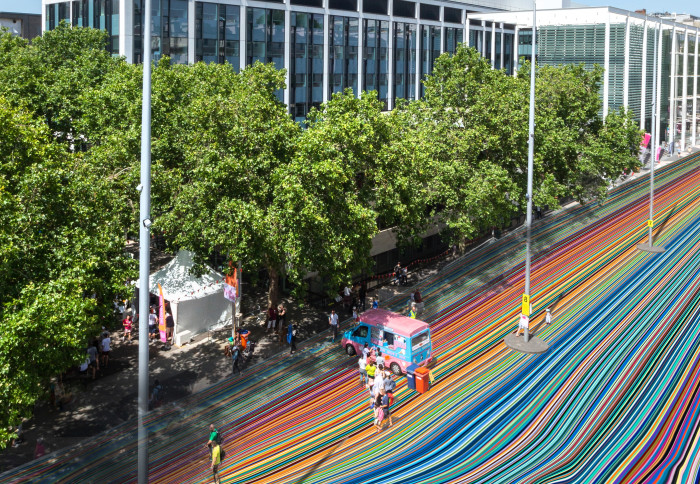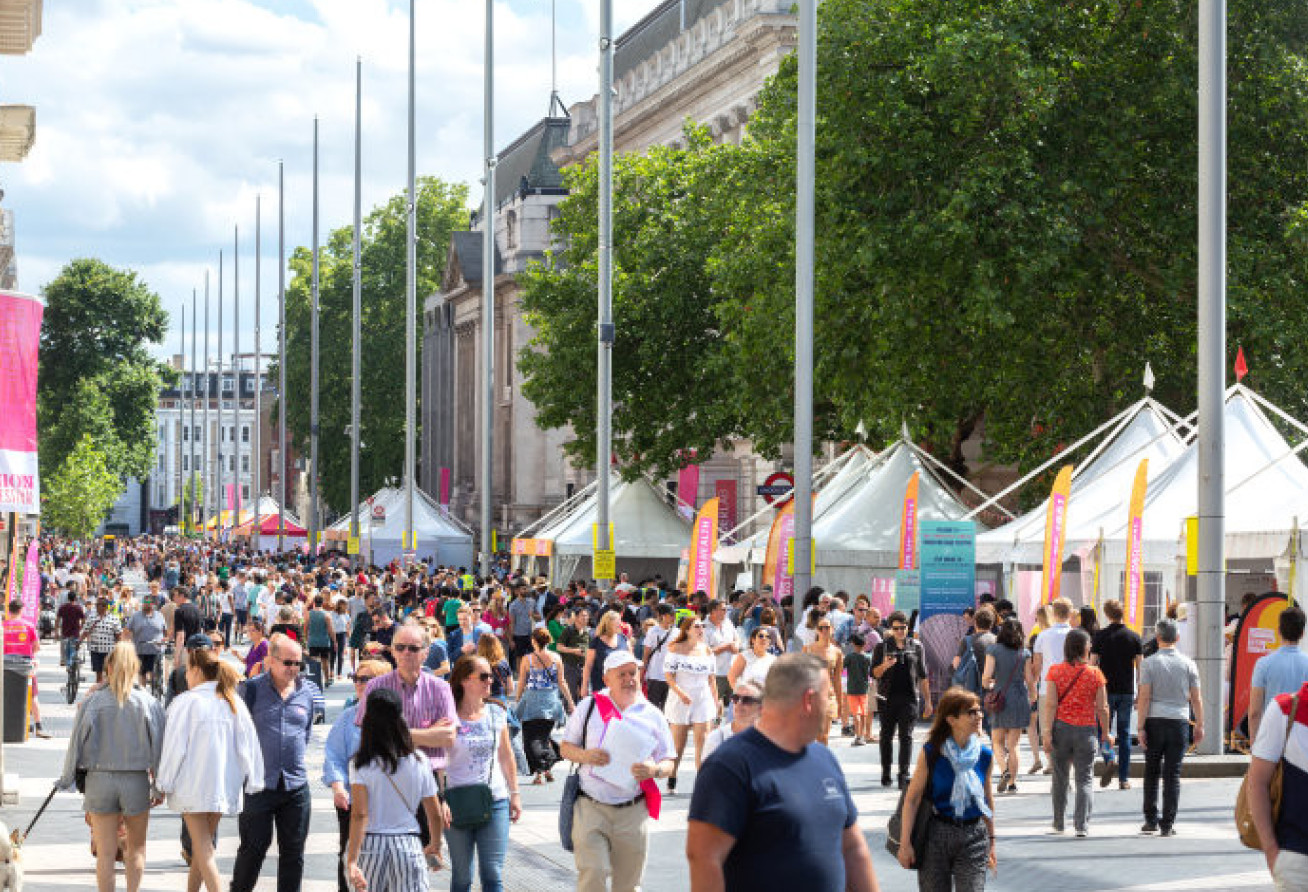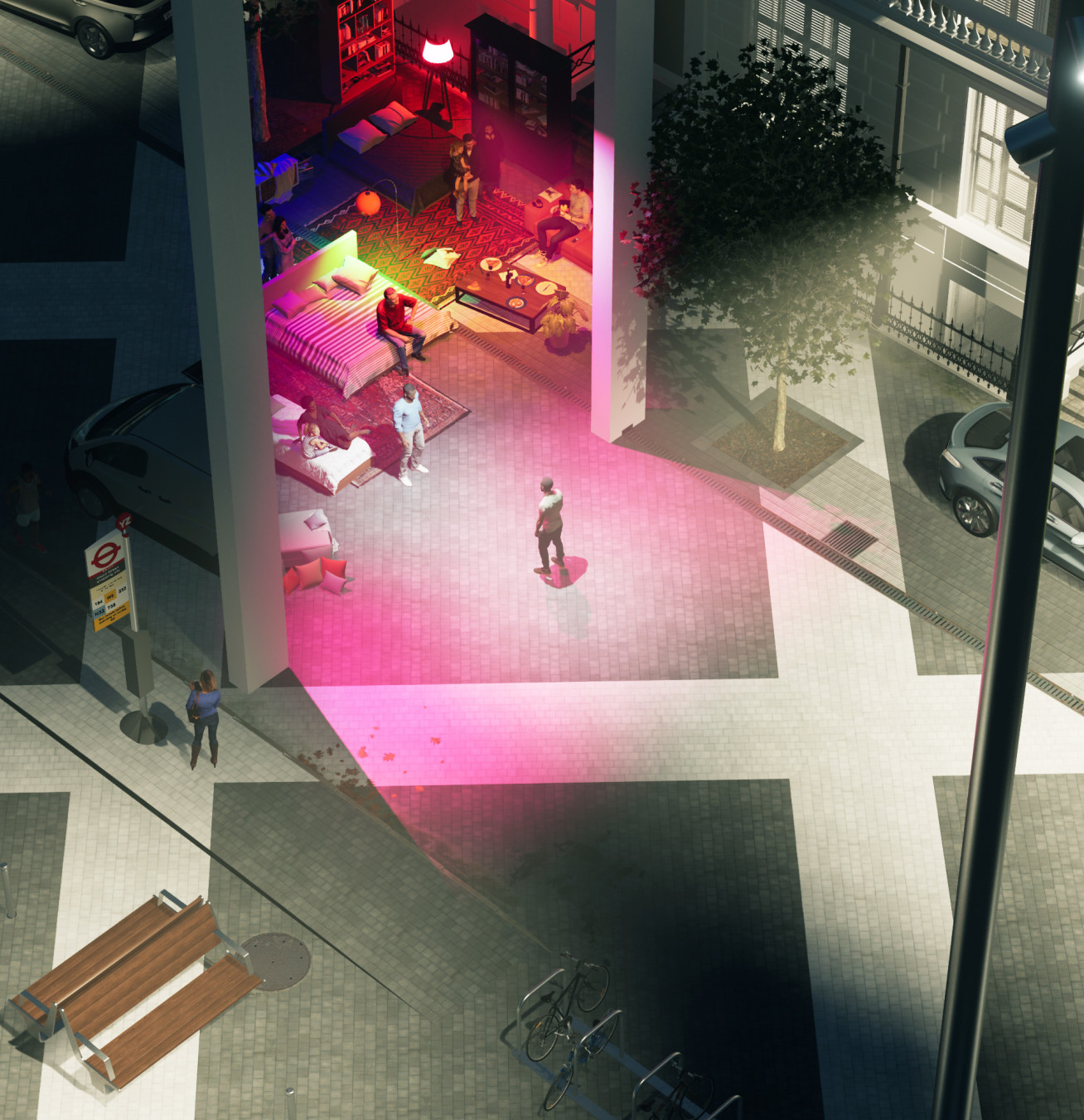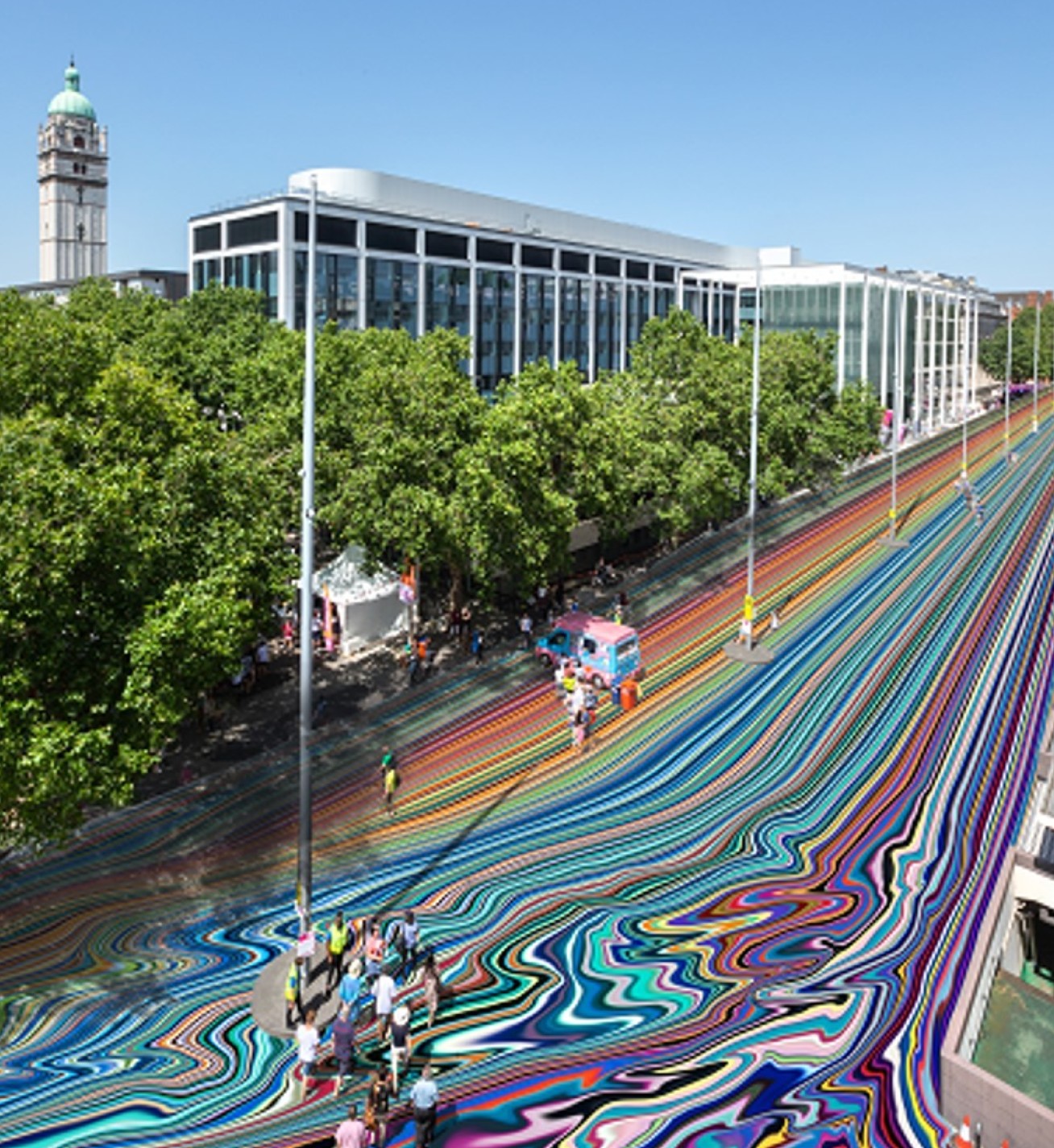Imperial scientists inspire artistic re-imaginings of ‘Albertopolis'
by James Romero

The Imperial led Great Exhibition Road Festival, and Kensington & Chelsea Art Week have launched a new exhibition to mark World Mental Health Day
‘Fantasies of Exhibition Road’ sees a diverse collection of artists create digital fantasies of iconic places on Exhibition Road in Albertopolis, where the Great Exhibition Road Festival takes place. Artists were invited to re-imagine the possibilities of the cultural quarter having been inspired by conversations with Imperial’s scientists conducting research in mental health and wellbeing.

The Great Exhibition Road Festival was launched back in 2019 as Imperial partnered with 20 neighbours from around South Kensington to create a unique weekend of art and science, culture and local history, technology and curiosity. Over 60,000 people attended the first Festival that year, however the cancellation of the 2020 Festival, plus the postponement of the annual Kensington and Chelsea Art Weekend drove a mutual ambition to explore new digital ways of bringing together science and the arts.
With backing from Huawei, Lead Technology Sponsor of the Great Exhibition Road Festival, the ‘Fantasies’ project is part of a new year-round ‘Explore at home’ online programme for all ages. Festival partners will be offering new free online talks, workshops and more, leading up to the return of the Great Exhibition Road Festival weekend on 3-4 July 2021.
Seven artists took part in the Fantasies project including Ian Davenport, Remi Rough, Squid Soup, Space Popular, Sadie Clayton, Can Büyükberber, (see his audiovisual piece below) and recent Royal College of Art graduate Ping Mu. The artists and collectives specialize in a variety of different media including copper, traditional painting, animation, complex computer programmed installations and augmented reality.
For the Fantasies project, each artist was given an opportunity to hear from a selection of Imperial researchers about their work in mental health and wellbeing via a series of online video calls. The participating artists were:
- Dr Emma Lawrance (Institute of Global Health Innovation), who is looking into the impact on mental health in the UK of digital charity mental health innovations such as the ‘Shout,’ tool - a 24/7 digital crisis text line service supporting people in crisis.
- Dr Lindsay Dewa (School of Public Health), who is investigating the importance of quality social connection for youth mental health, with a particular interest in how this is facilitated in digital spaces.
- Dr Martina Di Simplicio (Department of Brain Sciences), who focuses on mood instability, one of the first manifestations of distress in young people, and looks at how digital tools can be used to address mood instability and promote emotional well-being.

- Rachel Rodrigues (Department of Brain Sciences), who investigates self-harm in young people, with a particular focus on understanding the neuropsychological processes that motivate and maintain the behaviour and how this might inform future interventions
- Dr Laila Ait Bihi Ouali (Department of Civil and Environmental Engineering), who is measuring how the characteristics and design of the built environment and transport systems can cause or alleviate feelings of fear and increase or decrease travellers' satisfaction and wellbeing.
- Professor Rafael Calvo (Dyson School of Design Engineering), who focuses on the design of systems that support wellbeing in areas of mental health, medicine and education, and on the ethical challenges raised by new technologies.
- Dr Dasha Nicholls (Department of Brain Sciences), who is working to improve understanding and interventions for children and young people with feeding and eating disorders and obesity.

Ian Davenport, one of the participating artists, and the person who launched the Fantasy project concept during the height of the COVID-19 pandemic said: “During lockdown, I wanted to start a special series of posts on Instagram which are fantasy projects. These will be ambitious digital renderings on architectural sites and iconic buildings. If we can’t physically do them at least we can still dream!”
Ian’s piece (see right) looks at the impact of colour on emotional wellbeing and was inspired by a conversation with Dr Martina Di Simplicio, who said of the collaboration: “Ian asked me a lot of things but I didn’t know where it would go. It’s funny because the result really captures the essence of what we call the power of mental imagery in therapy or psychological terms. Art can give an intuitive sense of a scientific idea that can capture people’s interest or even convey that idea very eloquently and vividly, perhaps more experientially than a standard scientific description.”
Fantasies of Exhibition Road are hosted on the Great Exhibition Road Festival website
The Great Exhibition Road Festival is supported by Huawei, Lead Technology Sponsor, who share the Festival's ambition to interest and inspire people about the future of technology and the potential it has for improving our lives in the future.

Article text (excluding photos or graphics) © Imperial College London.
Photos and graphics subject to third party copyright used with permission or © Imperial College London.
Reporter
James Romero
Office of the Provost
